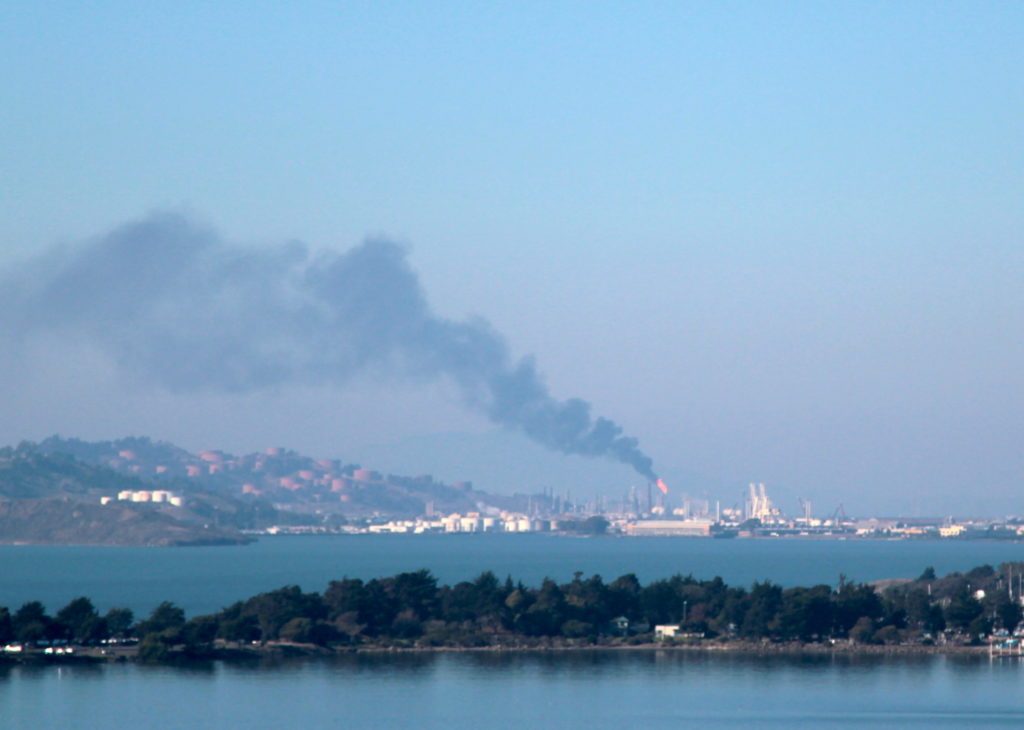Chevron owes more to Richmond & California

 This week, Fortune magazine released its list of the 500 largest corporations in the world. With a nearly 25 percent increase in its revenues from 2007, Chevron Corp. moved from the sixth to the fifth largest corporation in the world. Only 36 countries on the planet had GDPs larger than Chevron’s $263 billion in 2008 revenues.
This week, Fortune magazine released its list of the 500 largest corporations in the world. With a nearly 25 percent increase in its revenues from 2007, Chevron Corp. moved from the sixth to the fifth largest corporation in the world. Only 36 countries on the planet had GDPs larger than Chevron’s $263 billion in 2008 revenues.
By revenue, Chevron is the largest corporation in California, the second-largest U.S. oil corporation and the third-largest corporation in the nation. Chevron’s nearly $24 billion in profits for 2008 were its largest on record and the fourth-highest profits of any corporation in the world. Chevron’s profits have increased every year since 2002, increasing by an astounding 2,100 percent.
Those who have not benefited are the Richmond community, the site of Chevron’s oldest refinery, and the state of California.
In November, Richmond voters passed Measure T. At the current price of oil, it would provide the city with an additional $16 million annually from Chevron (adding 11 percent to the city’s tax revenues). Chevron sued, challenging the new tax.
Chevron has also repeatedly blocked state initiatives to impose a severance tax on oil extracted in the state. California is the only major oil producing state in the nation without such a tax. It is estimated that imposition of a severance tax could bring in over $1 billion a year to the California state budget.
Moreover, the Los Angeles Times reports Chevron’s role in lobbying to keep initiatives to increase corporate taxation more broadly off the table in the state’s budget negotiations.
The Chevron Richmond refinery is already the largest industrial polluter in the Bay Area. The Environmental Protection Agency reported nearly 100,000 pounds of toxic waste from the site in 2007, including more than 4,000 pounds of benzene, a known human carcinogen. The refinery is now, and has been, listed as in “high priority violation” of air compliance standards, among other violations, by the EPA every year since at least 2006.
Chevron now wants to retool the refinery to burn heavier crude that can be much more polluting than lighter grades. The senior scientist at Richmond’s Communities for a Better Environment has found no technological fix available to ensure that a refinery can mitigate this type of pollution. CBE joined other community health and environmental groups to block the retooling, and the court ruled in their favor. The groups are now asking the city to better regulate the refinery by specifically capping the type of crude it can refine to ban the heavier more polluting grades. Chevron has said it plans to appeal the ruling. (It will also give Richmond community programs $565,000 in grants connected to the project.)
Unfortunately, Chevron had already begun construction at the refinery and subsequently laid off 1,100 workers. Community groups have asked Chevron to instead work on necessary upgrades they have been demanding for years to make the refinery cleaner and safer – work that would create many jobs.
More beneficial to the long-term health of all who live in the city – including refinery workers – is not only a cleaner and safer refinery, but a company willing to give back to the communities within which it operates and the state it calls home.
